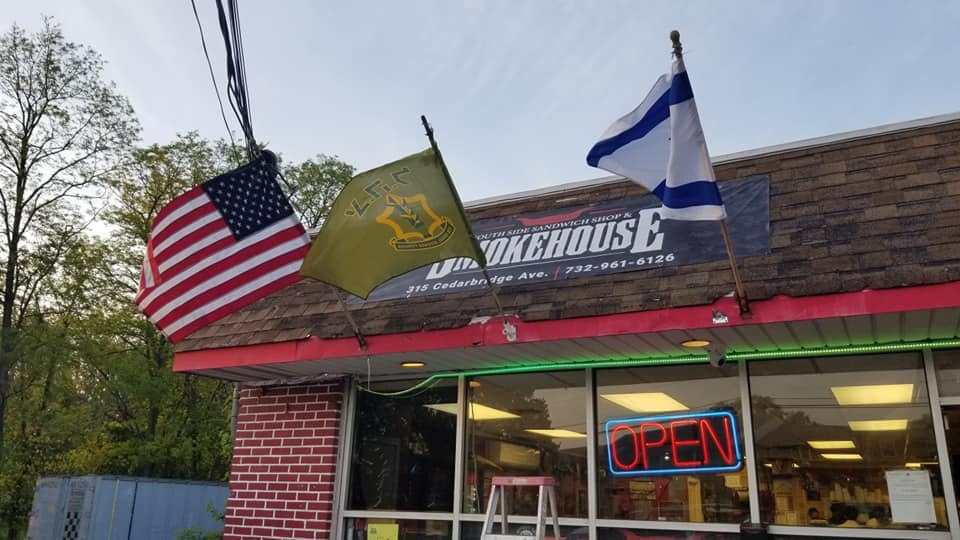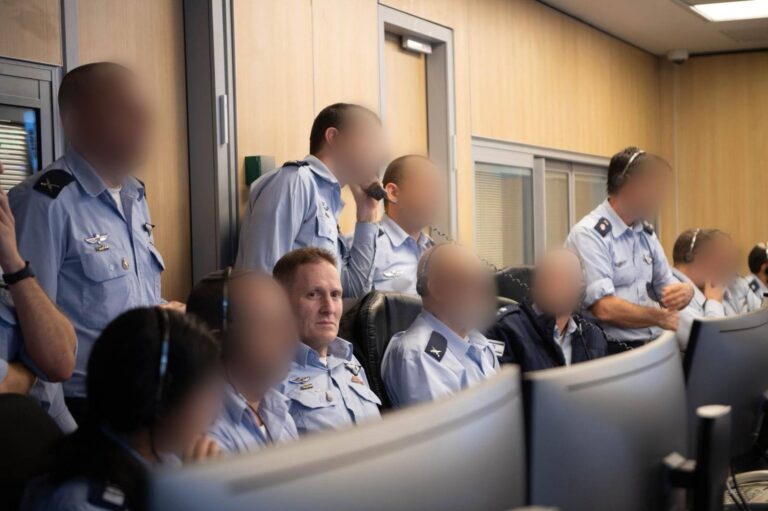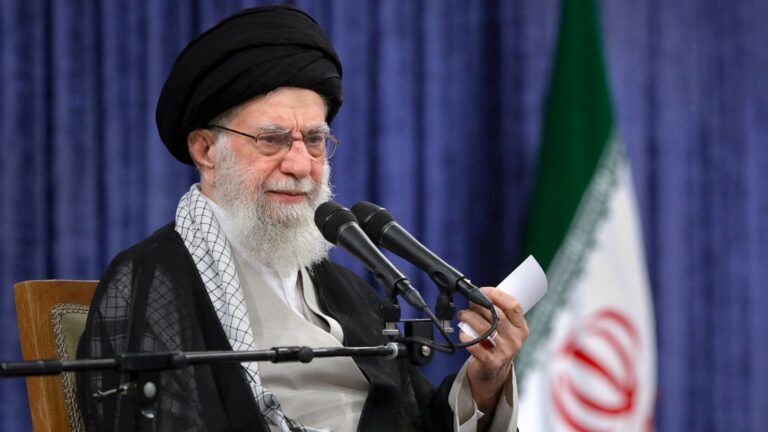(By Rabbi Yair Hoffman for 5TJT.com)
The case of the sandwich shop in Lakewood flying an Israeli flag on Israel’s Independence Day and the alleged statement of the mashgiach of the store’s hechsher has made international waves. The case brings up a fascinating halachic and/or socio-religious question. How much say should a Kashrus agency, or for that matter, a religious institution have on matters that do not directly pertain to Kashrus?
As a general rule, our communities are not so monolithic. They are made up of various streams – some more modern and some more “Chareidi” – for lack of a better term. The more Chareidi elements of a community would be more apt to desire:
- more tznius dress of the staff
- removal of non-Jewish music
- removal of controversial entertainment
- removal of things that promote the mixing of the genders
- removal of things that promote internet-related issues
The question is: Are there any underlying guiding halachic principles as to what a hechsher can or cannot ask? One issue, of course, is the concept of Lifnei Iver lo sitain michshol – do not place a stumbling block in front of the blind. This is a concept that has strict boundaries as to how it is defined. But we will return to this later. The following is this author’s own halachic analysis of the topic –
TWO TYPES OF HECHSHER ORGANIZATIONS
I would humbly like to present that, for these purposes of meta-kashrus issues, there are two types of hechsherim. There is “the only-game-in-town hechsher” and there is a hechsher where there are other viable options available.
The “other viable options” hechsher, in this author’s opinion – can do whatever they want in terms of demands. They are a business. Restaurants and food eateries can choose to go with a different hechsher if they so desire.
The “only-game-in-town hechsher”, however, is more limited. It can only make demands and requests for items that are actual and genuine halachic problems of “lifnei Iver.” This hechsher must and should conform to reasonable standards of community behavior.
Let’s take the first example of Tznius dress of workers. In Om Ani Choma Volume II, by Rav Mordechai Gross Shlita, a leading Posaik in Eretz Yisroel, Rav Elyashiv’s view is cited by the author in regard to whether or not neighbors can demand of another neighbor to reign in the dress of a housekeeper. Rav Elyashiv responded that halachically they cannot make such a demand because they do not have to go and pass there. However, there is an ethical imperative upon the employer not to conduct himself in this manner. This author feels that Rav Elyashiv’s statement of “one cannot make such a demand” is limited to a community standard of behavior. However, if it is a business making that requirement – then they can do whatever they want.
Practically speaking, Brooklyn has numerous hechsherim. If one of them chooses to create a requirement of a strict dress code for the staff – they may do so. Another community, such as the Five Towns – where there is only one hechsher around – would be limited, in this author’s view, and would have to accept Rav Elyashiv zt”l’s guidelines. The customer can avoid seeing the employee. Someone else can order, he can be seated facing the opposite direction.
Inappropriate non-Jewish music, on the other-hand might be very different. There is generally no way for any customer to avoid the music. There are, of course, different levels of inappropriate music. Some would constitute Lifnei Iver and some may not.
What about controversial entertainment? This believe it or not would be a machlokes in halacha. The underlying issue is whether or not it violates the halachic principle of possibly “giving a good name to evil-doers (See Yuma 38b). Rav Moshe Feinstein (Igros Moshe EH Vol I #96) seems to adopt a more lenient position when the controversial matter does not face us front and center. Both Mishneh Halachos Vol. VI #108 and Ne’er Moshe Vol. VI #74 are much stricter as is the Skver Halachic journal Zera Yaakov Gilyon #6.
What about the fourth topic – the removal of things that promote the mixing of genders? It would seem that both types of hechsherim could have requirements in this regard – but this might be dependent upon the social norms of the community. An issue that should be taken under consideration is the idea of “will it undermine the mission?” This author would like to suggest that there might be a very operative Rashi in parshas Sfoftim at play here.
Rashi explains that when two litigants appear before a judge, that judge should not dress down or give mussar to one of the litigants. The reason is that the litigant who receives a verbal lashing will give up hope as to receiving true justice and will not try to explain things as much as he ordinarily would have. The result? It will be a perversion of justice. But let’s analyze the judge a little bit closer. The verbal lashing under discussion is a deserved one. It is part and parcel of our general obligation to look out for the public good.
We have here, then a situation of two conflicting values. If the judge fulfills his obligation of Tochacha – then, while he is presiding over a case, he will be undermining the Torah ideal of ensuring justice. One can perhaps extrapolate from here that if the mission can or will be undermined – then one may have to set aside the conflicting value. Of course if there is clear and present lifnei Iver then it would be forbidden completely.
As far as the promotion of internet related issues, the Poskim have said that giving people unfiltered internet access where horrifying and demeaning movies can be downloaded chalila is strictly forbidden.
THE FLAG ISSUE
Does a hechsher have the right to legislate that a flag be taken down. It is this author’s opinion that a hechsher operating as a business where it is one of a number of viable options does have the right to make such a demand – even though we may personally disagree with it. The other type of hechsher, in this author’s opinion, does not have the right to make such a demand. Such a hechsher must comport to the standards of any neighbor.
One final note: Regardless of which type of hechsher it is, we must always follow the dictates of Shammai – who greeted everyone b’saiver panim yafos. This week’s perek of Pirkei Avos tells us that mankind was created b’tzelem elokim and this must be reflected in all of our interactions. Divrei Chachomim b’nachas nishma’im. High-handed behavior leads to chillul Hashem and whatever we do must follow the dictates of darcheha darchei no’am. This is, however, not a contradiction to maintaining high standards of Kashrus. We can still keep the highest standards of rigorous vegetable inspection, implementing effective systems of ensuring tvilas kailim, while still being respectful of all people.
The author can be reached at [email protected]
(YWN World headquarters – NYC)












23 Responses
if you equate a flag which is raised on the ponevitch yeshivah with music or dress, you need a refresher course in any number of halakhic, legal and logical areas.
“We can still keep the highest standards of rigorous vegetable inspection, implementing effective systems of ensuring tvilas kailim, while still being respectful of all people.” A truly Jewish value. Not like the talk-radio fueled goal of “owning” the opposition by demeaning them.
“Divrei Chachomim b’nachas nishma’im. ” This is how we should conduct ourselves at all times. and in the long run, it’s the only way that really works.
The Zionist flag was a blight upon the Ir HaTorah.
With all due respect and from me with little understanding of halocho
If one follows the logic of the eminent Rabbi Hoffman and if one extrapolated the very same logic… surely it would be necessary for
the patron to insist clients refrain from entering the establishment with none kosher mobile phones,
laptops or computer’s
Or is this an incorrect interpretation of the article above ?
The rabbis have das torah. The kehilla has to follow them.
1. You missed the point.
Posters, what if an establishment has a hechsher and it is open chalila on the Shabbat, based on your logic – some of you – that would be fine so long as they serve kosher food. I think otherwise!
They have established chumras, Hidurim , etc. which they should stick to. Available @ [email protected]
Should the American flag be displayed on Memorial Day & July 4th? definitely, as we live in a Medinah shel chesed.
Re: An Israeli flag display, Once it’s up, should be left up so as not to antagonize the POTUS agenda re: Israel v . the UN, etc.
Rabbi Hoffman says:
“The “only-game-in-town hechsher”, however, is more limited. It can only make demands and requests for items that are actual and genuine halachic problems of “lifnei Iver.” This hechsher must and should conform to reasonable standards of community behavior.”
With all due respect, I cannot disagree more. An “only-game-in-town” hasgocha which has it’s finger on the pulse of the neighborhood and is generally made up of the rabbonim of said neighborhood SHOULD be allowed to make such demands.
Precisely BECAUSE they are CLEARLY the Daas Torah of that town is the reason why they would feel the need to make such statements.
Besides, i cannot understand why this should be a public debate and it is also not a halachic question as Rabbi Hoffman tries to make it. It is purely a hashkafic issue that is relevant ONLY to the town that it pertains to and should not be in a public forum. Personally, that would have been a good topic for the Rabbi to have broached.
It’s possible that I misunderstood the entire saga, but I thought that the letter about removing the hashgacha came from a random person from the community. I thought that some passerby wrote them the letter to suggest that if they don’t remove the flag, then they don’t deserve to have the hashgacha on their wall.
Any Hashgocho should have some sort of tznius dress code for employees which is far more important than music or Flags etc.(one may look at flag/music but not at NON tznius female)
Different question: How much should a “kosher” news site weigh in on what a vaad hakashrus decides?
No mixing of genders? what about families?
I was appalled that the owner wore a blue shirt. Is this the way a ben torah dresses? It is a terrible influence on our bochrim who go in there. Are we so callous about our yiddishkeit that we buy meat from a non ben-torah? How much lower will we sink?
V’ain ladavar sof. The Rav Hamachshir needs serious psychological help. Next time I’m in Lakewood I will be sure to patronize his business.
Reb Moshe zt”l said the whole thing about flags is just stupidity; a meaningless nothing to make a fuss about….
So far, the cowards at this kashrus org. haven’t publicly explained their reasons.
Mr. Sandwich Shop, please fly the Israeli flag again on Yom Yerushalayim and we’ll all come to patronize you. Binareinu,Beyaldeinu, Bekaspeinu , U’vizkeineinu neileich…. I guarantee that a silent cowed majority in Lakewood and environs , if you polled them secretly, want the flag flown. We dare not allow dictators and tyrants to hijack Yiddishkeit.
This area has severe and frightening issues with young men and girls that are being pushed under the rug but the flag is what’s important. That outburst a few weeks ago at being denied a nice kosher concert is an ominous symptom and it’s going to bust out big if these shenanigans continue.
Every person is obligated on lifnei Iver. Kashrus certifications and organizations that promote reliable certifications should be laser focused on whether the food served or sold is edible by someone who keeps the laws of kashrus. That is this author’s opinion.
There *IS* a frum life outside of the Brooklyns, Lakewoods, 5 Towns, and Monseys of the world. Although considerably smaller, ‘out of town’ communities which are fortunate to have 1, 2, or even 3 kosher food establishment in the entire city (for the most part) aren’t and certainly shouldn’t be plagued with Shtushim over anything beyond the reputable kashrus of the food in the kitchen (and at times it’s hours of operation, regulating no shabbos openings). Take New Orleans, Cincinnati, Denver, etc where the amount of kosher options can be counted on the fingers of one hand don’t have restrictions over music, gender seating, clothing attire, televisions- nor SHOULD those restrictions be placed, as it places a barrier for financial success. Especially in towns where the non-observant Jewish community patronizes the kosher food establishment.
With all the pritzus at the Ritas Ices, why is everyone running there?
To check if they have an Israeli flag or Israeli salad?
Dear ZionGate
You most obviously do not live in Lakewood and probably just get all your garbage from internet sites.
I guarantee you that 90% of Lakewood would rather that flag NOT be flown.
The issue with boys and girls (which unfortunately is found in practically every community where boys and girls may be found) is NOT being swept under the rug at all. I do not know what you are referring to and can assure you that it is being dealt with very, very seriously.
Please stop trashing every Jew who is not like you.
“The customer can a) avoid seeing the employee. b) Someone else can order, c) he can be seated facing the opposite direction.”
I wonder why Rabbi Hoffman ignored option D. Dont go in. There is no obligation to enter any food establishment, ever, certainly not a sandwhich shop.
I Don’t get it …… Am I missing something?
What “Lifnei Iver” is there in flying the flag?
What “Lifnei Iver” is there in non-Jewish music? ….
I do see an issue of “lifnei Iver” when employees do not wear Tzneesdikeh Clothing ….
but a Flag? Is there even an “avak Eiveirah” in the Flag being raised outside a restaurant?
This whole “Shaaleh and Teshuvah” was an exercise in futility and has no Sheichis to the Lav of “Lifnei Iver”
In america, fly the american flag. In israel, fly the israeli flag. Flying flags of other countries isn’t always appreciated by our non jewish neighbors, especially in lakewood